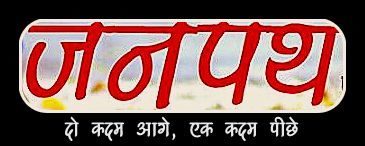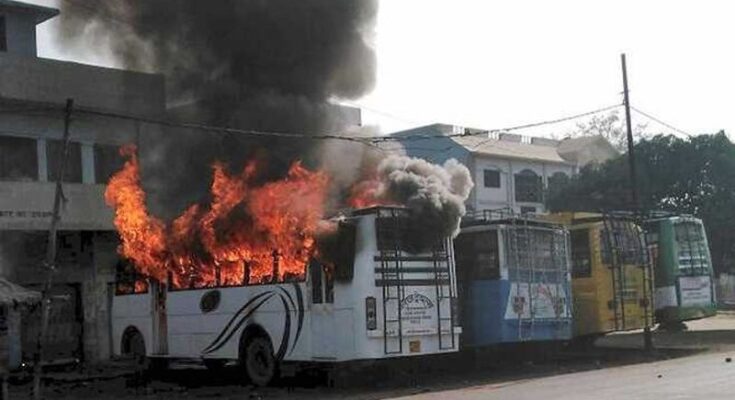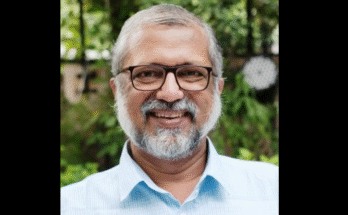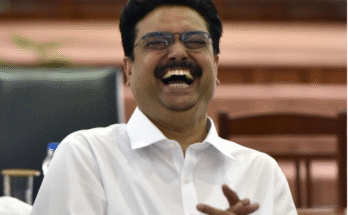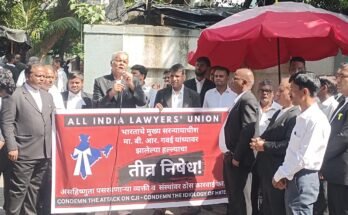In a shocking judgment (FIR 60/2018; Case numbers 1049/2022, 1758/2022 and 2766/2022) with grave implications for the freedom of speech, expression and association, the Special NIA Sessions Court in Lucknow made a series of obiter remarks against various NGOs and civil society organisations including PUCL while delivering a judgment of life imprisonment on 28 persons.
The views encapsulated in paragraphs 185-188 seek to delegitimize the work of Human Rights organisations around legal aid, fact finding visits and monetary aid. These are vital Constitutional tools that independent organizations use to establish facts, fix accountability and ensure succor for victims of communal strife. By casting aspersions on organizations the hon’ble court is taking recourse to the baseless narrative of “anti-national” interests working against the State. The contentious points in para 185 to 188 are as follows:
- The court observed that ‘the Prosecutors have expressed concern that in NIA courts across the country, when accused in cases under the UAPA or other anti-national/terrorist activities are brought for trial, NGOs—primarily advocating Muslim interests—promptly provide legal aid. This contradicts constitutional principles, as it boosts the morale of undesirable elements.’
- The Court went on to observe that human rights reports by written by various NGOs like Alliance for Justice and Accountability (New York), Citizens for Justice and Peace (Mumbai), Indian American Muslim council, Washington DC, People’s Union for Civil Liberties (New Delhi), Rihaee Manch (Lucknow), South Asia Solidarity group, London and United Against Hate (New Delhi), ‘exert undue pressure on the judiciary and the communal sentiment with stealth creep into the realm of ideas.’
- The Court went on to castigate ‘lawyers from NGOs’ for representing cases of national security, terrorism etc.’ Shocking the Court violates the jurisprudence of the Supreme Court by stating that it’ is not the right of an NGO to provide free legal aid to the accused who are involved in heinous crimes’… NGOS providing legal aid and lawyers is resulting in promoting a point of view which is very narrow and dangerous.’
- The Court concluded that, ‘citizens for justice and Peace, Mumbai, People’s Union for Civil Liberties, (New Delhi), Rihaee Manch, (Lucknow), United Against Hate (New Delhi), along with NGOs located abroad, like in America and the Great Britian, like the Alliance for Justice and Accountability, New York, Indian American council, Washington, DC), South Asia Solidarity Group (London), were “bogus”, not legitimate human rights organsations. As the Court put it, what could be their interests? Where is their funding coming from, and what are their collective objectives? To investigate this, prevent their unwarranted interference in the judicial process, and to take necessary action to stop them, a copy of this decision should also be sent to the Chairman of the Bar Council of India and the Principal Secretary, Ministry of Home Affairs, Government of India”. The PUCL response is as follows
- Courts should not make adverse remarks against individuals or groups without giving them an opportunity of being heard: Supreme Court of India Firstly, it should be noted that, none of the implicated organisations were before the Court or were put to notice that observations were likely to be made against them. The Supreme Court has laid down time and again that Courts should not make adverse remarks against individuals or groups without giving them an opportunity of being heard.
In the case of Teesta Setalvad V. State of Gujarat (2004) 10 scc 88) Supreme Court observed that: “ Time and again the supreme Court has deprecated the practice of making observations in Judgments, unless the person in respect of whom comments and criticisms were being made were parties to the proceedings and further were granted opportunity of having their say in the matter, unmindful of the serious repercussions they may entail on such persons. ……Observations should not be made by Courts against persons and authorities unless they are necessary or essential for decision of the case.”
We are shocked to note that the ruling has passed prejudiced, unsubstantiated and potentially damaging comments about the role of human rights organisations in general and PUCL in particular, when these comments are not germane to the issues in the criminal trial nor were they based on evidence led during the trial. Apart from the fact that these comments are in the nature of an obiter dicta, the fact that such comments have been incorporated into the ruling in a criminal case, which is bound strictly to the facts on record which have been tested during cross-examination and trial, raises doubts about fairness and impartiality in delivering justice in the specific criminal case.
It should be pointed out that third parties to the criminal trial don’t have any role or scope to intervene in specific criminal cases. Thus, while parties to the criminal case have the option of filing appeals in higher courts both to challenge the verdict of the trial court and also to challenge comments made in the trial court’s judgment, such is not the case with third parties.
- Conducting Fact Finding, not unconstitutional or unlawful
Secondly , the incident pertains to communal violence which happened in Kasganj in U.P. in 2018. UP has been a hotbed of growing communal tension and violence since even before the Ram Mandir Agitation that led to the demolition of the Babri Masjid. There have been allegations against the State authorities and the police of helping, provoking, aiding and abetting, communal tension more particularly targeting the minority religious communities. A biased narrative is built up by the authorities invariably blaming the minority community for any violence and then engaged in targeted arrests. It is in this context that it is vital that every such conflagration be investigated by independent civil society organisations to bring forth the true facts. PUCL has been involved in large number of fact findings throughout the country irrespective of the party in power and its fact findings have great credibility. In any case, fact finding, giving legal aid to accused and victims or even providing financial aid to accused or victims can by no stretch of imagination be considered as anti-national activity as sought to be conveyed by the Court. Campaigning on issues, bringing out an alternative viewpoint and public discussion are essential work of civil society organisations, an exercise of constitutional freedom and a key contribution to the idea of an associative democracy.
- Promoting by peaceful means civil liberties, harmony and the spirit of common brotherhood, agenda of the PUCL
Thirdly , it should be noted, that even when it comes to the present case as regards PUCL the only action it had taken pursuant to the violence was to act according to the objects of the PUCL Constitution which has as its aim and objects, ‘To uphold and promote by peaceful means civil liberties and the democratic way of life throughout India’
The visit to Kasganj was in pursuance of this object. The aim of the visit is to take forward the fundamental duty enjoined upon all citizens under Art 51(e ) which is ‘to promote harmony and the spirit of common brotherhood amongst all the people of India transcending religious, linguistic and regional or sectional diversities.’ As such, the PUCL has only acted in accordance with the values of the Indian Constitution and such actions do not merit such prejudicial judicial comments .
The judicial censure seeks to mark and target citizens for forming organisations exercising their right under Art 19(1) ( c) and getting together and putting forward a collective voice in defence of the ideals envisaged in the Constitution ! As Babasaheb Ambedkar put it, ‘constitutional morality is not a natural sentiment. It has to be cultivated’. The PUCL activities under its Constitution, aims to cultivate the constitutional morality embodied in the principle of ‘harmony’ and the ‘spirit of brotherhood’. This we submit is the responsibility of the state as well as members of civil society.
The UN Declaration on human rights defenders has also unequivocally recognised that, ‘Everyone has the right, individually and in association with others, to promote and to strive for the protection and realization of human rights and fundamental freedoms at the national and international levels.’
- The Public Interest work of the PUCL, through Public Interest Litigation (PILs) in the HC and SC strengthened the basic rights of citizens.
The fact that the PUCL has been a petitioner before both the Supreme Court and High Courts in numerous cases highlights the constitutional work of the PUCL and further exposes the unwarranted and prejudicial nature of the judicial observations. A number of judgments of the Supreme Court which ensure basic rights for citizens including the right to food, freedom from bonded labour and liberation of persons in manual scavenging have had the PUCL as the petitioner. PUCL has also worked towards enhancing the quality of our electoral democracy and has been the petitioner in the Supreme Court decisions recognizing NOTA as a valid option. The PUCL is also the petitioner in the decision of the Supreme Court recognizing that the voter has a right to know the antecedents of their candidate including the assets he or she possesses as well as criminal antecedents.
- Facts overlooked by the Court
Fourthly, the judicial comments also violate the judicial discipline of basing conclusions on facts which form part of the record. It should be noted that in terms of ‘facts’,
PUCL did not prepare a fact-finding report, nor did it provide any financial or legal support to families and accused. Though PUCL has in effect done none of the above, we strongly assert that conducting a fact finding is not a crime, providing financial or legal support to families and accused is a humanitarian task and completely within the bounds of the Constitutions.
It is also important for all to know that the PUCL is an unregistered citizens organization and gets no Institutional funding, foreign or Indian and works through contributions of its members and well-wishers and therefore the allegations of funding are baseless.
For the above reasons, the PUCL strongly asserts that the above stated observations
- are lacking in factual substance,
- attack the credibility of human rights work and
- seek to actively discourage perspectives rooted in the Constitution which seek to expose the state for not abiding by the Constitution!
Keeping in mind both the constitutional framework, the international legal framework as well as PUCL’s mandate, its work to promote constitutional values in society and PUCL’s work in the constitutional courts, the judicial observations stretch the bounds of reason and credibility. In the interests of fidelity to the constitutional values of freedom of speech, expression and association, and in the interests of truth and reason, we hope that these prejudiced and invidious observations are suo motu deleted from the reported judgment.
Kavita Srivastava (President) 9351562965
V. Suresh (General Secretary)
9444231497
332, Patpar Ganj, Opp. Anand Lok Apartments, (Gate No. 2), Mayur Vihar-I, Delhi 110 091
E.mail: puclnat@gmail.com Please visit our website: www.pucl.org
